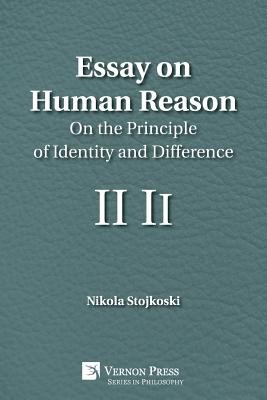
- We will send in 10–14 business days.
- Author: Nikola Stojkoski
- Publisher: Vernon Press
- ISBN-10: 1622734920
- ISBN-13: 9781622734924
- Format: 15.2 x 22.9 x 0.7 cm, softcover
- Language: English
- SAVE -10% with code: EXTRA
Reviews
Description
The nature of human reason is one of the thorniest of mysteries in philosophy. The reason appears in many specific forms within general areas such as cognition, thinking, experiencing beauty, and moral judgment. These forms are "perfectly" known in philosophy, yet an unknown pattern has been noticed which shows us that they are all a variation of the same theme: truth is an identity relation between the "thought" and "reality"; justice is an identity relation between the given and the deserved; beauty is an identity relation as rhyme is an identity relation between the final sounds of words; rhythm is an identity relation between time intervals; symmetry is an identity relation between two halves; proportion is an identity relation between two ratios; anaphora is an identity relation between the initial words. Particular things are identities in themselves and universals are identities between particulars. One idea associates another idea identical to it; an analogy is an identity between relations; induction is an identification between the known and unknown instances; and all the logic rests on the law of identity. What is common for all of them is the nature of reason itself.
EXTRA 10 % discount with code: EXTRA
The promotion ends in 20d.16:22:47
The discount code is valid when purchasing from 10 €. Discounts do not stack.
- Author: Nikola Stojkoski
- Publisher: Vernon Press
- ISBN-10: 1622734920
- ISBN-13: 9781622734924
- Format: 15.2 x 22.9 x 0.7 cm, softcover
- Language: English English
The nature of human reason is one of the thorniest of mysteries in philosophy. The reason appears in many specific forms within general areas such as cognition, thinking, experiencing beauty, and moral judgment. These forms are "perfectly" known in philosophy, yet an unknown pattern has been noticed which shows us that they are all a variation of the same theme: truth is an identity relation between the "thought" and "reality"; justice is an identity relation between the given and the deserved; beauty is an identity relation as rhyme is an identity relation between the final sounds of words; rhythm is an identity relation between time intervals; symmetry is an identity relation between two halves; proportion is an identity relation between two ratios; anaphora is an identity relation between the initial words. Particular things are identities in themselves and universals are identities between particulars. One idea associates another idea identical to it; an analogy is an identity between relations; induction is an identification between the known and unknown instances; and all the logic rests on the law of identity. What is common for all of them is the nature of reason itself.


Reviews